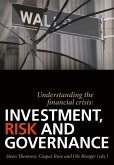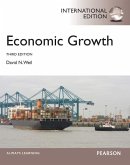The point of departure for this book is the fundamental assertion that managers of international enterprises must cope not only with the hazards that jeopardize the success of ordinary domestic transactions but also with additional perils that are uniquely international. Two of the most important of these are the risk of a breakdown in the rules and practices that govern international trade and investment flows, and country risk - the risk that a sovereign power will interfere with the repatriation of profits, interest payments, principal repayments, or the control of foreign assets. The issues addressed include the prospects for foreign exchange crises, trade wars, international banking crises, and oil shortages; the factors that generate economic, political, and social risk; organizational strategies for mitigating country risk; and the scope for insuring against international risks. The contributors include academic experts from the fields of economics and finance and distinguished practitioners from international corporations, financial institutions, and international agencies.
Table of contents:
Acknowledgments; Introduction and overview Richard J. Herring; 1. Managing risks to the international economic system Richard N. Cooper; Perspective Robert O. Keohane; Perspective Tommaso Padoa-Schioppa; 2. Country risk: economic aspects Jonathan Eaton and Mark Gersovitz; 3. Political risk: analysis, process, and purpose Martin Shubik; 4. Country risk: social and cultural aspects John Dunn; Perspective Helen Hughes; Perspective Rimmer de Vries; Perspective John T. Reid; 5. Organizational and institutional responses to international risk Raymond Vernon; Perspective James R. Street; 6. Insuring against country risks: descriptive and prescriptive aspects Howard Kunreuther and Paul Kleindorfer; Perspective James M. Wybar; Index.
The point of departure for this book is the fundamental assertion that managers of international enterprises must cope not only with the hazards that jeopardize the success of ordinary domestic transactions but also with additional perils that are uniquely international.
Issues addressed include the prospects for foreign exchange crises, trade wars, international banking crises, and oil shortages.
Hinweis: Dieser Artikel kann nur an eine deutsche Lieferadresse ausgeliefert werden.
Table of contents:
Acknowledgments; Introduction and overview Richard J. Herring; 1. Managing risks to the international economic system Richard N. Cooper; Perspective Robert O. Keohane; Perspective Tommaso Padoa-Schioppa; 2. Country risk: economic aspects Jonathan Eaton and Mark Gersovitz; 3. Political risk: analysis, process, and purpose Martin Shubik; 4. Country risk: social and cultural aspects John Dunn; Perspective Helen Hughes; Perspective Rimmer de Vries; Perspective John T. Reid; 5. Organizational and institutional responses to international risk Raymond Vernon; Perspective James R. Street; 6. Insuring against country risks: descriptive and prescriptive aspects Howard Kunreuther and Paul Kleindorfer; Perspective James M. Wybar; Index.
The point of departure for this book is the fundamental assertion that managers of international enterprises must cope not only with the hazards that jeopardize the success of ordinary domestic transactions but also with additional perils that are uniquely international.
Issues addressed include the prospects for foreign exchange crises, trade wars, international banking crises, and oil shortages.
Hinweis: Dieser Artikel kann nur an eine deutsche Lieferadresse ausgeliefert werden.








